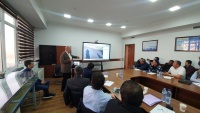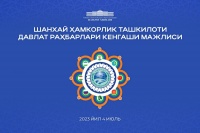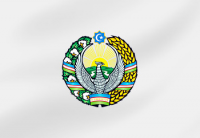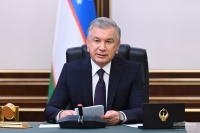Budget incomes and export revenues – important source of social sector development
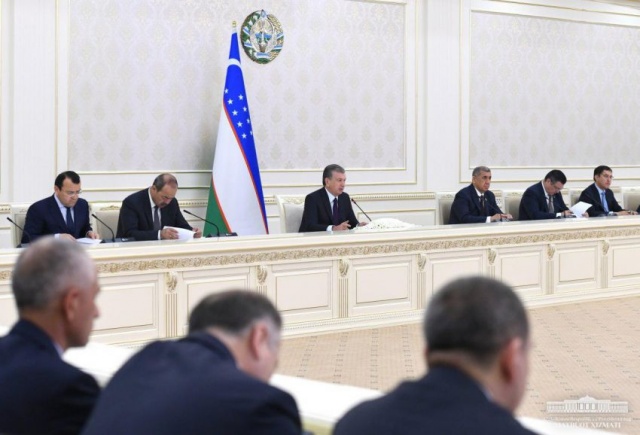
On April 4, a videoconference session under the chairmanship of the President of the Republic of Uzbekistan Shavkat Mirziyoyev was held on performance in the realization of forecast revenues in the State budget and exports, as well as securing strict implementation of forecast indicators for the first half of 2019.
In the first quarter, revenues to the national budget have met the forecast parameters to the full. This is twice the figure of the same period last year. In the first quarter, revenues of local budgets exceeded the forecast by 1 trillion 253 billion soums, 1.5 times more funds remained at the disposal of the regions than in the same period of 2018.
The Head of the state noted that the greater the incomes of local budgets, the faster current social issues are addressed. Additional funds may be allocated to the local implementation of the Five Initiatives, the government programs "Obod Qishloq", "Obod Mahalla", "Drinking Water", "Every Family Entrepreneur" and others, increase incomes, improve the level and quality of life of the population.
President Shavkat Mirziyoyev sharply criticized the fact that not all managers are aware of the importance of this issue. In particular, 9 districts and cities have failed to meet the forecasts for budget revenues.
In seven of the eleven districts of the city of Tashkent, the forecast parameters on revenues were not fulfilled. The heads of tax inspections of these districts are dismissed. The passivity of the heads of khokimiyats and tax departments of the capital in ensuring revenues to the budget has been criticized.
This situation is observed in the regions, too. In this regard, the State Tax Committee is charged to consider the issue of competency of the heads of tax departments in a number of districts and cities to the position held.
As is known, one of the main goals of the Concept of Improving the Tax Policy of Uzbekistan is to equally distribute the tax burden.
The Head of the state noted that the government faces a number of tasks that must be performed to effectively implement the tax reform.
In particular, since early this year the number of payers of value added tax has increased fivefold. Due to the lack of effective and simplified mechanisms for calculating the value added tax, 9 thousand of the 26 thousand enterprises that have switched to the new system have failed to submit tax reports on time.
The Cabinet of Ministers and the State Tax Committee are instructed, within a month, to develop jointly with international experts a draft resolution on elimination of problems arising from the implementation of tax reform.
One of the main obstacles in ensuring revenues to the budget is the continuing informal activity in the economy.
President Shavkat Mirziyoyev stressed the completely unsatisfactory state of affairs in the area. In this regard, the Head of the state instructed to intensify the measures taken in this area.
Thus, the Chamber of Commerce and Industry and the Business Ombudsman were instructed, together with the khokimiyats, to approve a schedule of meetings with businesspeople who had suspended their activity and take measures to facilitate the resumption of their work.
According to preliminary calculations, with the timely elimination of these problems by the end of the year, the budget could receive additionally at least 6 trillion soums.
In particular, there are opportunities for providing, in the second quarter of this year, 200 billion soums of additional budget revenues in Bukhara, Navoi, Tashkent regions and the city of Tashkent, 170 billion soums in Kashkadarya, 140 billion soums in Andijan region, 130 billion in Karakalpakstan, 100 billion in Fergana region, 80 billion each in Samarkand and Namangan, 60 billion each in Jizzakh, Surkhandarya, Syrdarya and Khorezm regions, 2 trillion soums in total.
At the meeting, measures taken to increase the country's export potential were also discussed.
It was noted that in the second quarter the task was executed at 1.1 billion USD more in exports than in the first quarter. In particular, in April-June, khokimiyats should provide 3 times more exports of fruits and vegetables compared to the first quarter.
The Head of the state criticized responsible persons in certain areas and industries, as well as regional leaders, because the available opportunities are not fully exploited.
It was entrusted to submit practical proposals in the near future with an indication of what competitive advantages our country has for the production of export-oriented products, in which region and what types of products it is advisable to produce and to which countries to export it.
A number of tasks are to be resolved to simplify customs clearance of exported goods, obtaining permits from regulatory agencies. For example, if the execution of export documentation in Uzbekistan takes 96 hours, then abroad this figure is an average of 12 hours and 20 minutes.
Due to the inadequate implementation of the Single Window system in the area of issuing export permits, entrepreneurs have to visit at least 10 departments.
In this regard, the Cabinet of Ministers was instructed to introduce, with the assistance of the departments responsible for export-import operations, the Single Window system, which will provide public services related to foreign economic activity.
The State Customs Committee was pointed out the need to take appropriate measures on increasing the capacity of customs posts during the ripening season of fruits and vegetables, as well as to prevent queues.
The President noted the need for ensuring full compliance with the forecast volumes of placement and cultivation of agricultural products.
In order to strengthen Uzbekistan's position in export markets, it is necessary to establish effective activity of agricultural associations organized in fruit growing in Gallaaral, Zaamin, Bulungur, Urgut, Kibray, Parkent, Altyarik districts and the city of Kuvasoy.
In addition, the State Plant Quarantine Inspectorate was entrusted with conducting negotiations with similar services of foreign countries to actively promote locally grown cherries, apricots and other popular products in the foreign market, as well as take measures to create favorable conditions for domestic exporters.
It was emphasized that a high level of transport and logistics costs has a negative impact on the growth of the export potential of the country. As the first step towards solving this problem, cars imported into Uzbekistan are exempted from customs duties since February of this year.
The Ministry of Transport has been instructed to extensively use the rail transport opportunities in the export of fruits and vegetables, to introduce a simplified mechanism on Single Window principle.
In addition, in order to expand the truck fleet, the task was set to make reasonable proposals for the introduction of a system for granting loans for the purchase of vehicles with a production date of not more than 4 years.
At the meeting, the leaders of each industry and region were indicated their personal responsibility for ensuring the stability and timeliness of export revenues.





